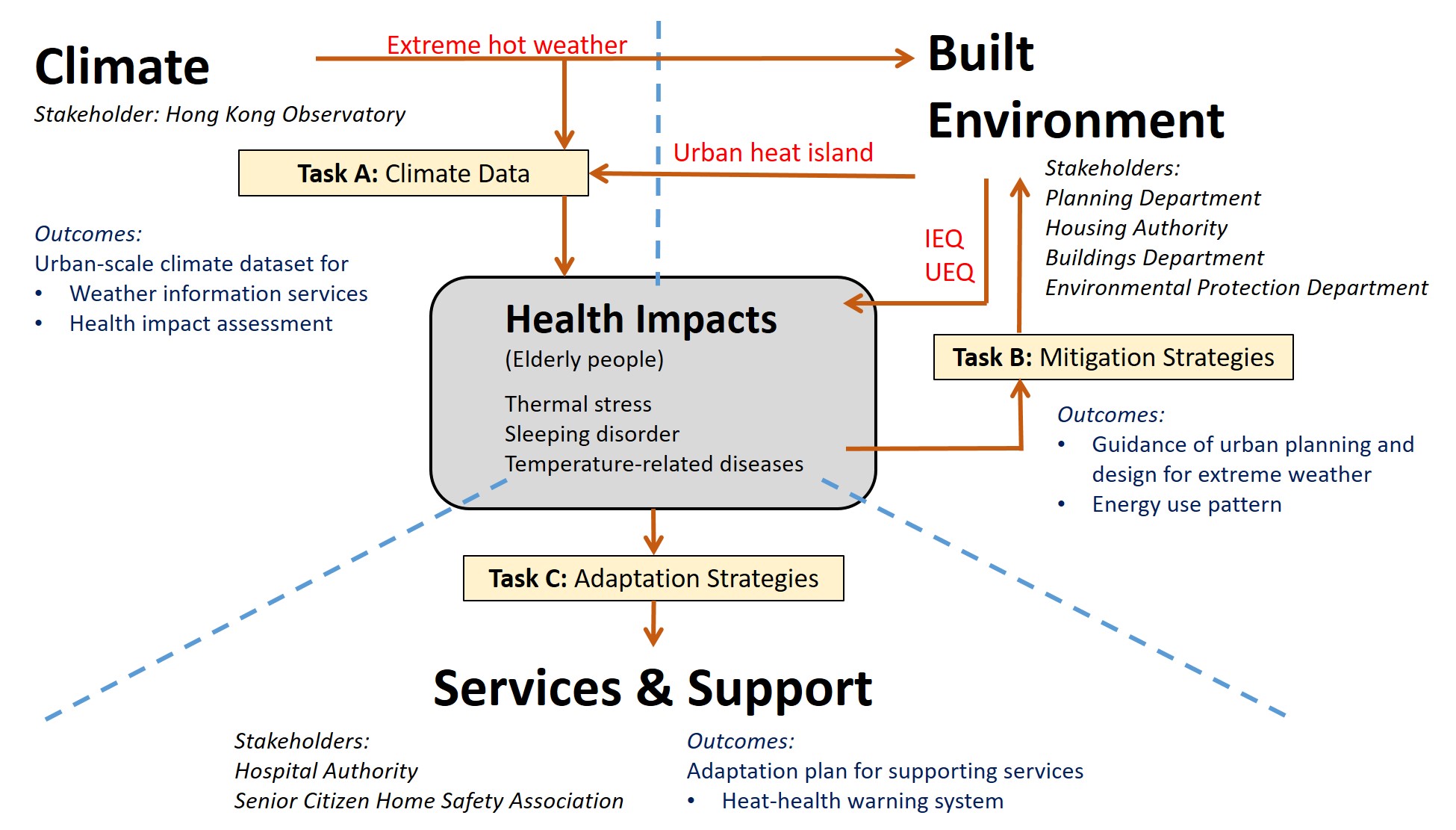
Project Background
Extreme hot weather is expected to be more frequent and intense in Hong Kong under future climate change. The impacts will be exacerbated due to the presence of urban heat island (UHI) phenomenon in our high-density city. In particular, elderly people are more vulnerable to the impacts of extreme hot weather because of their decline in physiological functions and their behaviour and response. As such, plans for “mitigation” and “adaptation” actions are urgently needed.
Numerous studies have proved that excess mortality and morbidity are associated with extreme hot weather. It is important for different sectors of the society to take necessary actions. However, there are three issues to be addressed for successful responses.
- There is a lack of data for understanding the extreme hot weather in our city. Hong Kong is a high-density city with a complex urban environment. There are large variations in the intra-urban temperature so high-resolution spatial and temporal data are required for the assessment of exposure and vulnerability of extreme hot weather.
- There is a lack of evidence-based mitigation action plan. Building and neighbourhood design are important to both the livelihood of citizens and the mitigation to climate change. There is an urgent need for better understanding of the impacts of extreme hot weather on the living environment.
- There is a lack of evidence-based adaptation response plan. Timely responses during extreme hot weather are important to safeguarding the health and well-being of elderly citizens. It requires a comprehensive understanding of the health impacts due to extreme hot weather so that effective adaptation plans can be developed.
This study will provide a methodological framework for incorporating the scientific knowledge of extreme weather and its associated impacts on the elderly health and well-being into a comprehensive plan for response actions.